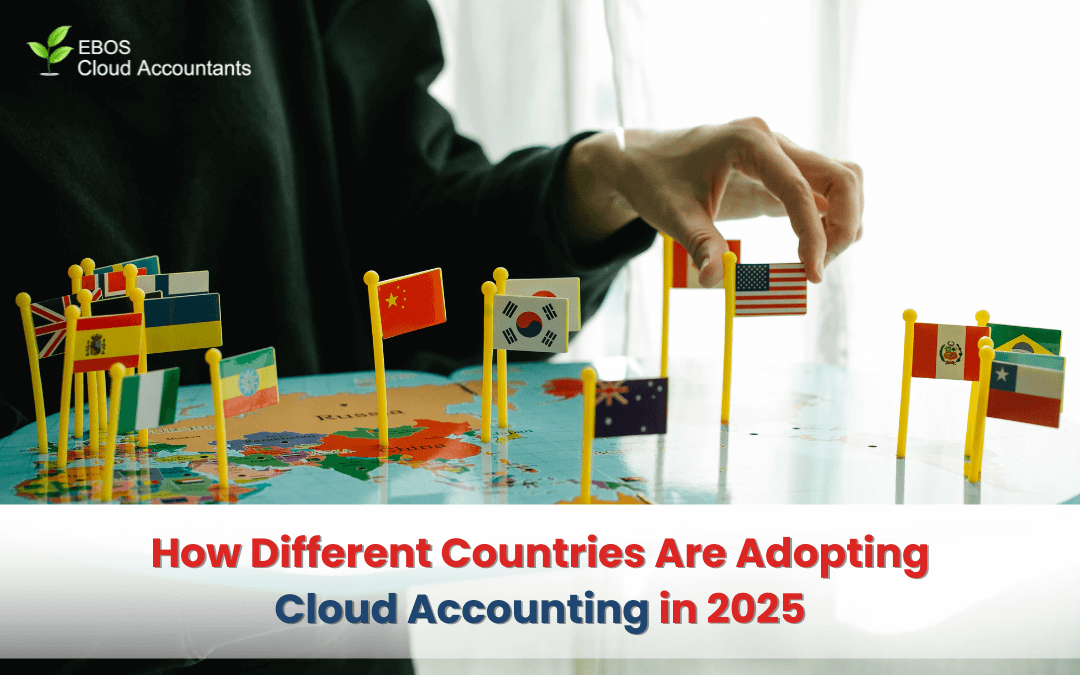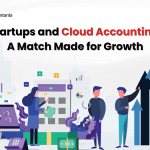In 2025, cloud accounting is no longer a luxury—it’s a global standard for businesses looking to streamline operations, improve financial visibility, and stay compliant in an increasingly digital world. But the pace and style of adoption vary from region to region. Understanding these differences can help businesses operating internationally make smarter technology decisions.
Why Cloud Accounting Is Gaining Global Momentum
The benefits of cloud accounting—real-time financial data, automation of tax compliance, and scalability—are universal. Businesses everywhere are turning away from traditional, on-premise software to embrace the cloud because:
-
Remote work and global teams demand real-time access to financial data.
-
Regulatory compliance increasingly requires digital recordkeeping and e-invoicing.
-
Cost efficiency and automation help SMEs stay competitive.
Yet, the way countries are implementing cloud solutions reflects local regulations, economic conditions, and cultural attitudes toward technology.
Cloud Accounting Adoption by Region in 2025
1. Asia-Pacific (Singapore, Malaysia, India, Australia)
-
Singapore: A pioneer in digital transformation, Singapore actively promotes e-invoicing through the Peppol network and IRAS-approved accounting software. Most SMEs are adopting cloud solutions for GST compliance and automation.
-
Australia: With its Single Touch Payroll (STP) and mandatory digital tax reporting, cloud adoption is near universal for SMEs.
-
India: Rapid growth, driven by GST e-filing requirements and mobile-first business culture. Localized solutions dominate, but global platforms like Xero and QuickBooks are gaining ground.
Key Trend: Governments in Asia-Pacific are mandating digital compliance, accelerating adoption.
2. Europe (UK, Germany, France, Nordics)
-
UK: The Making Tax Digital (MTD) initiative ensures that almost all VAT-registered businesses must use digital accounting tools. Cloud adoption is extremely high among SMEs and startups.
-
Germany & France: Cloud adoption is strong but moderated by strict data privacy laws (GDPR). Businesses favor local providers with robust compliance guarantees.
-
Nordic Countries: High-tech penetration and government incentives make cloud accounting nearly standard.
Key Trend: Regulation-driven digitalization, combined with a focus on security and compliance.
3. North America (USA & Canada)
-
USA: Adoption is widespread, driven by demand for automation, multi-entity management, and remote access. However, regulatory diversity across states means businesses often require custom setups.
-
Canada: Similar adoption patterns as the U.S., with additional emphasis on bilingual (English/French) software.
Key Trend: Market competition among SaaS providers like QuickBooks, Xero, and FreshBooks pushes innovation.
4. Middle East & Africa
-
UAE & Saudi Arabia: Growing cloud adoption due to VAT compliance requirements and a government-led push for digitalization in line with Vision 2030 initiatives.
-
Africa: Adoption is slower but accelerating in hubs like Kenya and South Africa, where SMEs are turning to affordable, mobile-first cloud platforms.
Key Trend: Compliance and cost-effectiveness are major drivers, alongside the need for remote work tools.
5. Latin America
-
Countries like Brazil and Mexico have strong e-invoicing mandates, pushing businesses toward cloud accounting solutions.
-
Adoption is also fueled by increasing cross-border e-commerce and regional trade agreements.
Key Trend: Government-mandated digital reporting is a key accelerator.
Challenges in Global Adoption
Despite rapid progress, businesses face:
-
Data privacy and sovereignty concerns in regions with strict laws (e.g., Europe).
-
Connectivity issues in developing countries are slowing adoption.
-
Localization requirements like language, tax codes, and currency handling.
What Global Businesses Should Do
-
Choose a scalable solution with multi-currency and multi-entity capabilities.
-
Ensure compliance features align with local tax and reporting laws.
-
Invest in cybersecurity and understand data residency requirements.
Final Thoughts
Cloud accounting in 2025 is a global necessity, but not a one-size-fits-all solution. Businesses operating internationally must consider local regulations, cultural adoption trends, and infrastructure when selecting a platform. Those who embrace the shift early will gain a competitive advantage through real-time insights, efficiency, and simplified compliance.
Check out our website at https://ebos-sg.com/ to explore more articles and discover how our Cloud Accountant Services can support you on your business.







